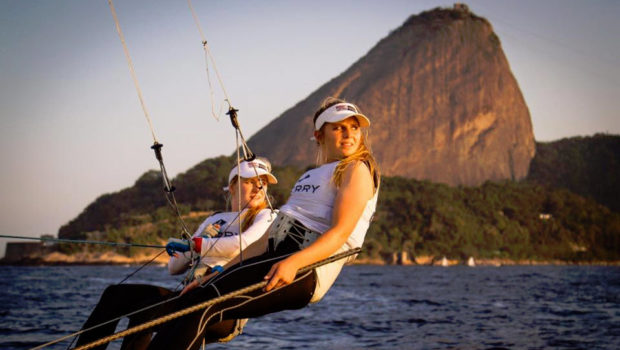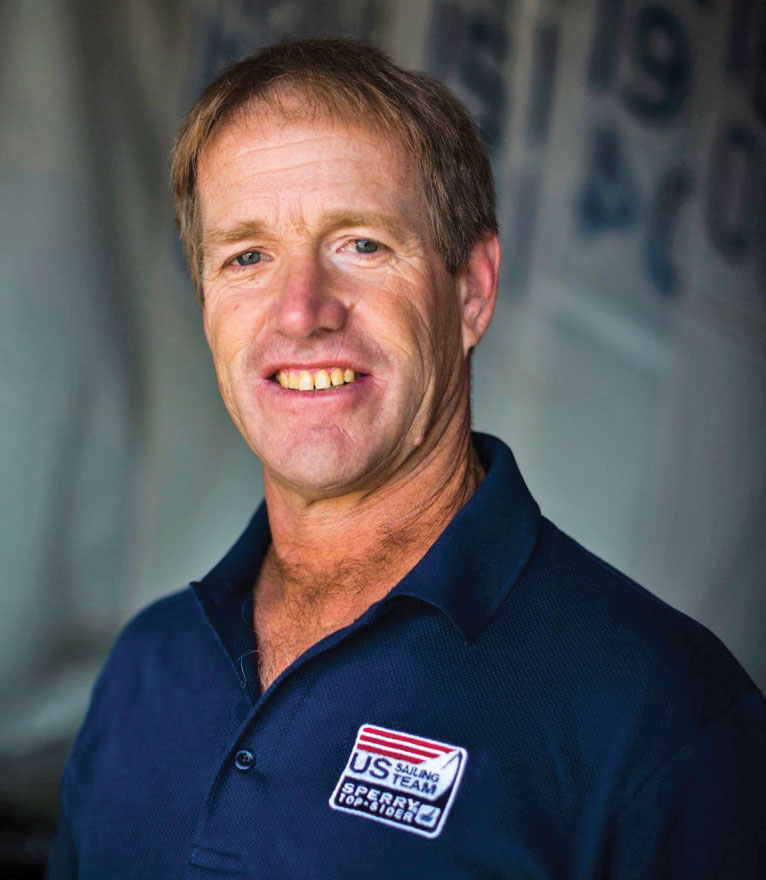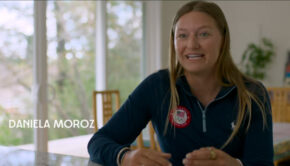Rio Games and Beyond
Published on July 27th, 2016
Two-time U.S. Olympic medalist Charlie McKee is in his first quad as High Performance Director for the US team as they prepare for the 2016 Olympic Games. Scuttlebutt editor Craig Leweck spoke with Charlie about Rio and beyond.
Let’s discuss what is needed to get ready for the Rio Games.
There’s always the psychological component when you go somewhere and you feel out of your element. That’s when it’s not as easy to perform. Then, for the Olympic Games, people often take the strategy that they’re just going to pretend it’s just another regatta. But that’s just not realistic or possible. It really isn’t.
This is an area we’ve spent a lot of thought on from day one, and Josh Adams has been very strong about this, that our people are going to be comfortable and confident in Rio. While none of that wins you medals if you’re not good enough, it does give yourself a chance to perform well. Becoming comfortable on land and on the water are two areas that we have covered pretty well.
We have a few people who qualified for the Games who have not spent much time in Rio, but they are now making up that deficit as much as possible. We’re definitely not taking the approach of just training the people up and then we go to the Games. And frankly, most countries are taking the same approach we have. We’re pretty organized and we were lucky that some of our top sailors from early on believed that too and have spent a lot of time there.
Those sailors that have spent a lot time in Rio like it there. They like going to Rio; they like sailing there. And that all gets lost in all the news reports about Rio’s water quality. The fact of the matter is they’ve been running regattas for 50 years in Rio and they’re still running regattas, and our sailors sail there are a lot, and the more our sailors go there, those are the ones that like it the most and are the most comfortable there. And we know that puts you in a frame of mind to be successful. We have also benefited from a good training base that is away from the chaos of downtown Rio. It’s quieter, calmer, and safer which has helps us be more productive.
The 2000 Games in Sydney rotated the events amongst a number of quite different race course. That is the plan for Rio too. The knowledge needed must be quite extensive.
Sydney is the best example. That was the first Games where they as a matter of policy, moved different events to different courses, and the differences between the different courses was extreme in terms of conditions. Rio’s exactly the same way.
Racing outside Guanabara Bay is nothing like racing inside. And even the different Rio inside courses are very, very different. One is extremely current oriented. The wind on another course is extremely influenced by being underneath Sugarloaf Mountain. One is sort of in the middle, influenced by both current and geography. Another has moderate shifts and small chop. It doesn’t take much of a course move for the conditions to drastically change. Our sailors will have to be ready for that wide variety of conditions. And that’s good. That’s going to make it a great Games.
I hear just getting enough wind might be an issue.
The reality in Rio during their winter is sometimes there is no wind inside Guanabara Bay and sometimes there is no wind outside. So there might be a lot of courses but not many that can be used on certain days.
Tough question… what are the medal prospects in Rio for the team?
We only have a few medal prospects for Rio, and nobody is a favorite to win a medal. One would be great. Does zero medals or one medal really change where we are? Not really, but we are on the right track longer term.
We have a young team and we know people that aren’t in contention yet, but if we help them as much as we can to make the Rio experience as good as we can, that this could be the springboard for next time. And since we don’t have the budget to completely support them, we have to want them to do another campaign. We hope the experience is good enough that they’ll want to, and they’ll go raise the money and do the right things, and put their life on hold enough to do it.
And so that’s where I think the caliber of how we interact with them and the coaching we provide them, how they feel about the whole team experience, it’s quite an important. We’re recruiting from the inside as well as outside.
So the long-term success of the program is largely reliant on the ability for the athletes to do multiple campaigns?
There’s no question about it. We have a lot of talented young kids in the USA but if only 10% of them do Olympic campaigns, it’s hard to elevate the program. If 30 or 40% did, it would be a lot easier. An Olympic campaign is not for everyone, but the ones that it is for, we want to make it easier for them. And we want the caliber of the experience to make them hopefully come back.
How to follow the Olympics… click here.










 We’ll keep your information safe.
We’ll keep your information safe.